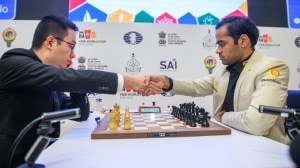Iran curbs: What India must do
As the United Nations Security Council (UNSC) unveils a fourth round of sanctions against Iran on Wednesday....
As the United Nations Security Council (UNSC) unveils a fourth round of sanctions against Iran on Wednesday,India will have to look beyond the formal implementation of the new measures to focus on its more basic interests that are likely to be affected by the gathering confrontation between Iran and the United States.
Given its tradition of respect for international rules,India will respect the obligations arising from a mandatory resolution of the UN Security Council. Since 2006,when the UNSC announced the first set of sanctions to compel Iran to end its nuclear defiance,India has affirmed its commitment to enforce all UN measures against Iran.
As the EU prepares to give a tough interpretation to the new sanctions against Iran and the US Congress gets ready to impose unilateral sanctions of its own against Tehran,Indias diplomatic challenges have begun to just about multiply.
Coming amidst the recent Indian outreach to Iran,amid an evolving political dynamic in Afghanistan,Delhis diplomatic skills will be tested as the tensions between its regional imperatives and wider interests rise.
What should matter most for India is not the technical language of the UNSC resolution,but the nature of the political understanding that the Obama Administration has arrived with Beijing on the additional sanctions that the US Congress is planning to impose on Irans energy sector.
It is these US sanctions that are likely to bite India and its energy security than the UNSC measures. There are indications that the Obama Administration might be willing to carve out an exception for Chinese energy investments in Iran,in return for its support for a much watered down UNSC resolution.
Like China,India will have to find a nimble approach that will let it be seen as cooperating on curbs against Tehran,while protecting its energy interests in Iran.
Analysts say the emerging power initiative was perhaps too little and too late to prevent the latest resolution,which gained the support of all the five permanent members of the UNSC,including China and Russia,as well as most non-permanent members.
This broad support in the UNSC somewhat reduces the Indian discomfiture over the fresh sanctions against Iran. During the last few months,the UPA government has also argued that the UN sanctions should not hurt the ordinary people of Iran. A similar approach had also been taken by Beijing and Moscow.
The new focus on targeting the international financial operations of Irans powerful Revolutionary Guards and limiting heavy arms sales would suggest that it would not hurt India too much in implementing the UNSC sanctions.
Indias challenge lies in avoiding more direct costs that could come from the additional US and European measures aimed at Irans oil sector.




- 01
- 02
- 03
- 04
- 05



























